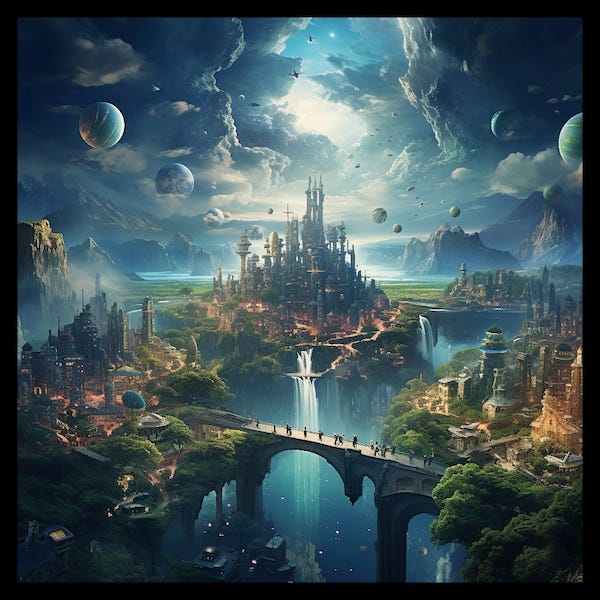Thoughts on the Worldview Genre
with Conventions and Obligatory Moments Thrown In For Good Measure
Every month, as we shift to a new genre, we like to go back and review the Conventions and Obligatory Moments that readers anticipate when they select a genre. But these moments are not just about the reader. As writers, these are the moments that live on the page and can serve as guideposts as we craft our stories. Henry is our expert explainer in this area. Listen in as he shares information essential for all you worldview story writers to know.
Written by William Henry Lyne IV
Worldview
Today I am talking about the content genre we call Worldview.
Remember, content genre is what writers and editors use to create a story. We are not talking about marketing genres such as Young Adult or Science Fiction that publishers and bookstores use to advertise.
What is a worldview? It came into English as a translation of the German word weltanschauung. (English pronunciation: wel·tuhn·shau·uhng)
The Merriam-Webster Collegiate Dictionary defines worldview as:
a comprehensive conception or apprehension of the world especially from a specific standpoint.
Here is a simple way to think about worldview. In life, each individual has their own experiences and out of them forms their worldview. Whether you are consciously aware of it or not, you have some kind of worldview. It may not be consistent, clear or even rational but you have at least one worldview that affects all the choices you make in your life. This makes the worldview genre so rich with dramatic possibilities.
Internal & External
In Internal Genres: Worldview, Morality, and Status in Story, Shawn Coyne distinguishes between internal and external genres. An external genre is about what happens to the protagonist in the physical world. An internal genre is about what happens in the mind of the protagonist.
You can design stories that make the external genre, say a Thriller, work with the internal genre, say Worldview, so that the physical circumstances force the protagonist to examine and change her Worldview. So much of today’s world is filled with Thriller-Worldview stories, it’s hard to make up better stories than you find in the news, but you can pick what you want to emphasize and tell gripping tales that people will read to help them understand their world.
Subgenres & Valence Shifts: How the protagonist’s worldview changes from the beginning of the story to the end.
Genres have sub-genres. Here are some subgenres of Worldview:
Education,
Maturation,
Revelation,
and Disillusionment.
Here are some of the worldview changes the protagonist may make:
No meaning to meaning in life,
Naive to wise or worldly,
Ignorance to knowledge,
Belief to disillusion.
Obligatory Scenes and Conventions
Remember, we talk about Obligatory Scenes and Conventions of a genre because the genre sets the reader’s expectations. And, wise editors tell us that readers expect these scenes and conventions.
As you search for Obligatory Scenes and Conventions for a genre, you will find them organized and expressed in slightly different ways. Here I have chosen to use Story Grid Editor, Savannah Gilbo’s list.
Here is a statement of Six Key Scenes for the Worldview Genre:
The protagonist’s worldview is threatened or challenged.
The protagonist commits to the wrong thing possibly confusing what they want with what they need.
The protagonist sees the truth or part of it but chooses to ignore it.
The protagonist realizes they can’t run from the truth any longer.
The protagonist embraces the truth and sheds their outdated worldview.
The protagonist’s loss of innocence is rewarded. The reward may be bittersweet.
Here are Ten Conventions of the Worldview Genre:
A mentor figure that can guide and support your protagonist.
A protagonist with an outdated worldview or some kind of false belief.
Social problems or moral challenges for your protagonist to face.
At least one shapeshifter character who says one thing and does another.
An internal change within your protagonist that leads to an updated worldview.
A confrontation with the adult world (no matter the age of your protagonist).
An emphasis on friendship.
External pressure from friends, family, or society to be a certain way.
Secrets kept from your protagonist or secrets kept by your protagonist.
A bittersweet ending
Conclusion
Worldview is a rich genre. We need a lot of good stories that help people realize, examine, and “improve” their worldviews.
We hope The Write Fix inspires you to write at least one of them. Look at your own Worldview path. You can help those who are traversing a similar path.
Be sure to read the references. They are short and valuable.





